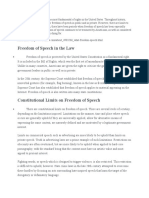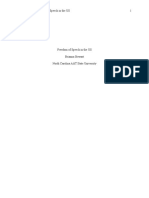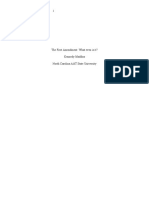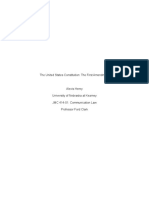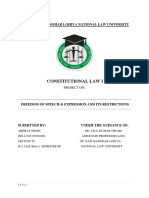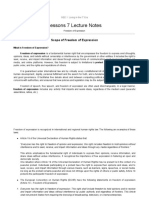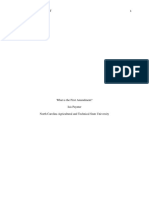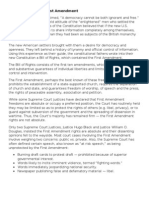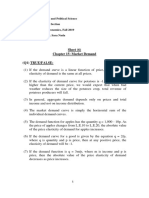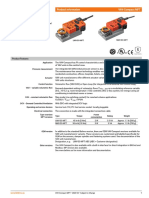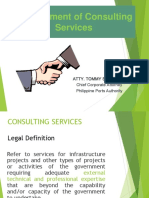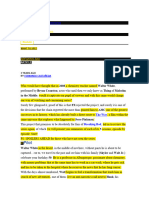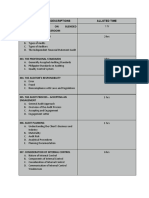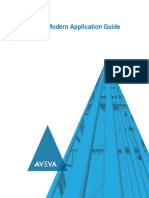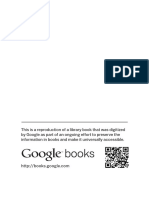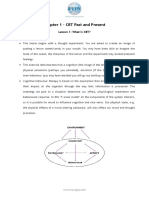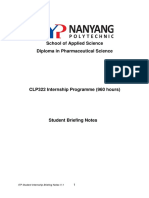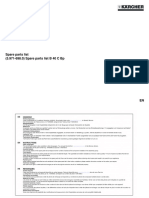0% found this document useful (0 votes)
107 views9 pagesThe First Amendment
The First Amendment of the US Constitution protects several basic freedoms including freedom of speech, freedom of religion, freedom of the press, the right to assemble, and the right to petition the government. It was adopted in 1791 to guarantee citizens the freedom to make their own decisions without punishment. While these freedoms are important, there are some limitations including prohibitions on things like child pornography, incitement of violence, true threats, and defamation. The First Amendment aims to provide equality and liberty for citizens through protections of civil rights and liberties.
Uploaded by
Denise AvellanedaCopyright
© © All Rights Reserved
We take content rights seriously. If you suspect this is your content, claim it here.
Available Formats
Download as PDF, TXT or read online on Scribd
0% found this document useful (0 votes)
107 views9 pagesThe First Amendment
The First Amendment of the US Constitution protects several basic freedoms including freedom of speech, freedom of religion, freedom of the press, the right to assemble, and the right to petition the government. It was adopted in 1791 to guarantee citizens the freedom to make their own decisions without punishment. While these freedoms are important, there are some limitations including prohibitions on things like child pornography, incitement of violence, true threats, and defamation. The First Amendment aims to provide equality and liberty for citizens through protections of civil rights and liberties.
Uploaded by
Denise AvellanedaCopyright
© © All Rights Reserved
We take content rights seriously. If you suspect this is your content, claim it here.
Available Formats
Download as PDF, TXT or read online on Scribd
/ 9






